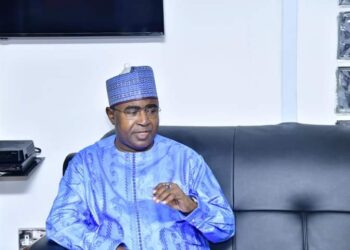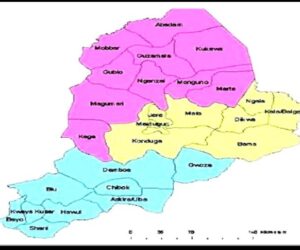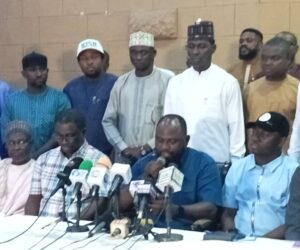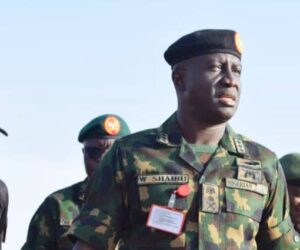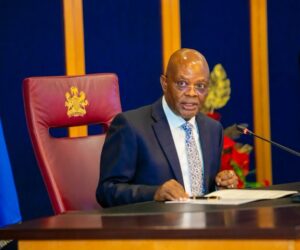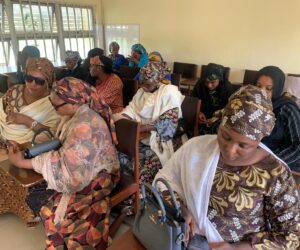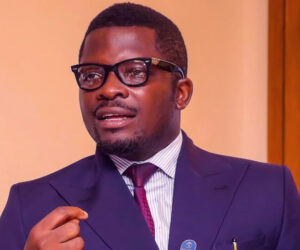The Human Rights Writers Association of Nigeria (HURIWA) has described the tenure of Brigadier General Mohammed Buba Marwa (Rtd.) as the most transformative and results-driven era in the history of the National Drug Law Enforcement Agency (NDLEA), citing unprecedented figures in arrests, convictions, and institutional reforms since the agency’s creation in 1989.
A review by HURIWA National Coordinator,Comrade Emmanuel Nnadozie Onwubiko, in a press statement Monday, revealed that while successive chairmen contributed to the agency’s evolution, none has matched the scale, scope, and sustained momentum achieved under Marwa’s watch.
“Established in 1989 to combat drug trafficking and abuse, the NDLEA began full operations in 1990 under its pioneer Chairman, Fidelis Oyakhilome.
“He laid the agency’s structural foundation before being succeeded by Fulani Kwajafa in 1991, whose brief tenure focused on expanding state commands. Subsequent leaderships under Ba’ppa Jama’are, Musa Bamaiyi, Ogbonnaya Onovo, and Iliya Lokadang saw modest progress amid institutional instability and limited enforcement capacity.
“The agency began to find firmer footing under Alhaji Bello Yusuf Lafiaji (2000–2005) and Ahmadu Giade (2005–2015). Giade’s decade-long tenure recorded about 8,637 convictions and notable international recognition that led to Nigeria’s removal from the United States’ list of major drug-transit nations.
“However, the NDLEA under Col. Muhammad Mustapha Abdallah (2016–2021) struggled to sustain that tempo, with fewer publicly reported breakthroughs,” it said.
According to HURIWA’s findings, the arrival of Marwa in January 2021 marked a decisive turning point.
“Within four years, the NDLEA has recorded over 73,000 arrests, including 110 high-profile drug barons, secured more than 12,000 convictions, and seized over 15 million kilograms of assorted illicit substances.
“These figures surpass the combined performance of some previous administrations.
“In 2024 alone, the agency reportedly arrested 17,670 suspected traffickers, seized over 2.7 million kilograms of illicit drugs , and counselled and rehabilitated more than 8,129 drug users through its demand-reduction programmes.
“The NDLEA also conducted over 3,000 sensitisation campaigns nationwide, reaching an estimated 1.8 million Nigerians in physical attendance.”
HURIWA noted that Marwa’s approach has gone beyond conventional interdiction to include preventive education, counselling, and international collaboration.
Under his leadership, the agency intensified the War Against Drug Abuse (WADA) initiative, targeted transnational cartels, and achieved significant legislative reforms, including amendments to strengthen the NDLEA Act.
Comparatively, while Ahmadu Giade’s tenure is often cited as one of the most stable, and Lafiaji’s era introduced structural reforms, the association observed that Marwa’s term combines operational excellence with transparency and integrity. No corruption scandal has been linked to his administration, a stark contrast to the controversies that tainted some earlier leaderships.
“The NDLEA under Marwa has demonstrated what strong, accountable leadership can achieve when backed by institutional vision,” HURIWA observed. “His record-breaking performance has redefined Nigeria’s anti-narcotics campaign and restored public trust in an agency once plagued by low morale and weak enforcement.”
The rights group urged the Federal Government to sustain the momentum through better funding, welfare for operatives, and continued support for the agency’s community-based initiatives, which have proven effective in reducing drug dependence and related crimes.
HURIWA’s National Coordinator, Comrade Emmanuel Onwubiko, commended Marwa for “repositioning the NDLEA into one of Nigeria’s most credible security institutions” and urged other agencies to emulate the agency’s mix of discipline, professionalism, and results-driven management.
“What Marwa has achieved in less than five years is unmatched in the NDLEA’s 35-year history,” Onwubiko said.
“He has turned the agency into a model of accountability and public service, showing that leadership still matters in governance.”

